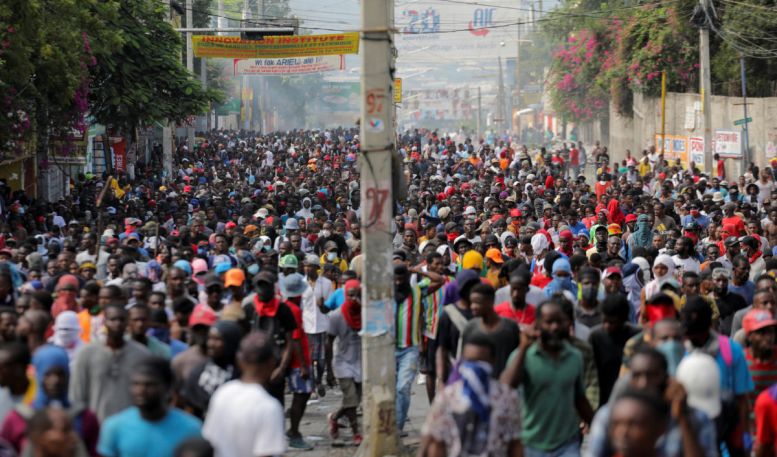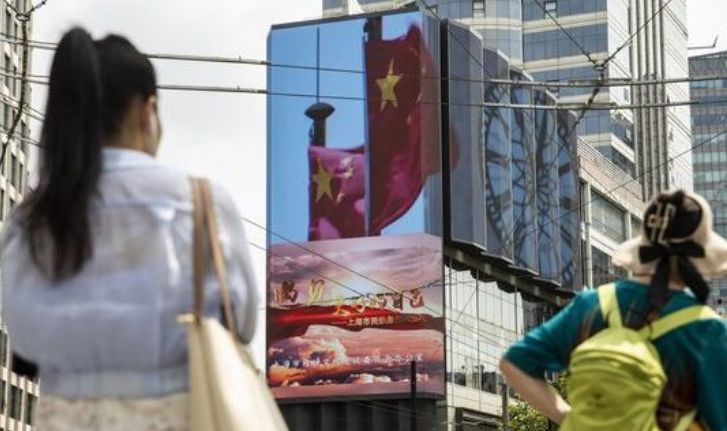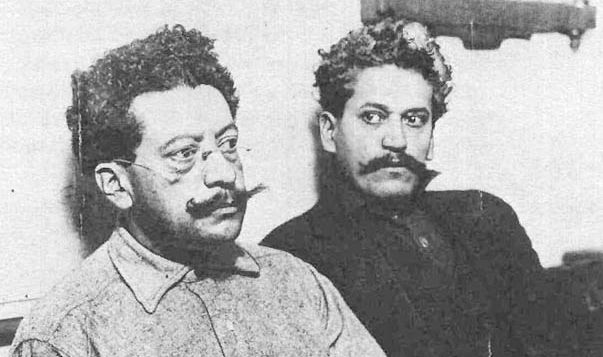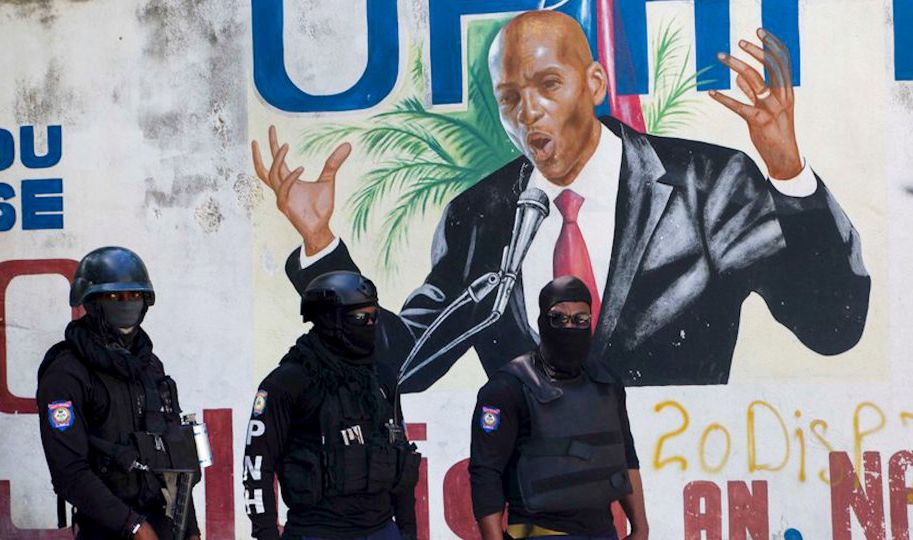Eric Jenkins is a member of Socialist Alternative in the US.
The United Nations is currently debating whether to send a non-UN military force to “bring stability” to Haiti. Ariel Henry, prime minister of Haiti, has begged the UN to send a “specialized” task force to eliminate gangs. The United States and Mexico are the main voices of support for this military intervention, which looks extremely likely to happen.
Haiti is in a state of complete social chaos. Gangs are numerous in both the cities and rural areas. The most influential gang, G9, led by Jimmy “Barbecue” Chérizier, has blockaded the main fuel depot Port-au-Prince, which residents rely on. Many are left without electricity. Nurses and doctors rush to ration the few days’ worth of fuel that is left.
Now, the US imperialist bloc is gearing up to escalate the situation pretending to be the “police force” of the capitalist world. It was US imperialism’s chokehold on the island that led to this horrendous situation in the first place. The Haitian working-class is faced with such an extreme crisis that the only way out requires a total liquidation of the current Haitian political regime and smashing the neo-colonial subjugation of the island by the US by breaking with capitalism.
Living Situation pushes Youth to the Brink
The average Haitian worker is faced with the immense crisis of food insecurity, high prices for basic necessities, and constant threats of violence. Many have been made unemployed when COVID shut down the factories and supply lines. Haiti’s large garment industry — employing more than 60,000 workers — laid off tens of thousands during the pandemic. While avoiding the brunt of the pandemic in terms of actual COVID cases/deaths, most simply didn’t have any money to prepare for this international crisis of inflation, which in Haiti is about 30%.
The majority of the Haitian population is under the age of 25. Faced with almost no options other than joining the growing mass of the unemployed, or working a dead-end job, many young Haitians are turning toward crime to make a living. Kidnappings for ransom are such a common occurrence in Haiti’s capital, Port-au-Prince, that it has become an entire industry. There have been over 628 kidnappings this year — two or three a day.
These gangs have taken up a political edge with the youth swelling their ranks. The largest gang-confederation, G9, and its leader Jimmy “Barbecue” Chérizier have demanded the resignation of Ariel Henry in exchange for lifting the blockade. Chérizier is a former Haitian police officer who indiscriminately attacked Haitian protesters and working-class communities. While the militant anger the Haitian youth hold toward the political elites forces Chérizier to adopt a populist rhetoric (murals of Che Guevara adorn the walls of the neighbourhoods under his control), he is no friend of the oppressed.
Without a genuine expression of the organized Haitian working class with a clear mass political organization with concrete demands, these gangs will continue to swell in membership and influence. Haitian working people are using class-struggle tactics to find a way out of this situation, such as nurses striking in demand for more funds and an end to gang violence. Without more strikes of this nature, many Haitian youth will flock to these gangs to grab back any control over their lives, only to be used as tools by politically connected gang leaders like Chérizier, or as an excuse by the capitalist class to crush dissent.
Rotten Haitian State’s Dependency on Imperialism
The demand for Ariel Henry’s resignation being overshadowed by gang violence has been a blessing for the Haitian political elite. Henry became the acting President of Haiti after the assassination of Jovenel Moïse last year, resulting in a power vacuum between rival political cliques. Henry canceled his initial plans for an election after he took power, and publicly questioned the need for such elections, causing the anger of the Haitian masses to spill out into the streets. There were back-to-back protests, including general strikes led by various unions, calling for Henry’s resignation. The Haitian state responded with out-right repression using a mix of police and gangs to violently crack down on protestors.
The Haitian political elite is in total disarray, with many having no clue how to get out of the current dilemma. It’s clear that elections are probably off the table in the near future as Ariel doubles down in his position. This is the same situation under Moïse, when he refused to step down from his presidency and continuously pushed back election after election. These regimes’ purpose is to assure that Haitian exports to the United States continue unfettered, not to improve the lives of ordinary Haitians.
Haiti being trapped in neocolonial subjugation to the United States and other imperialist powers lessens the power of its domestic capitalist class. Haitian business elites are dependent on raw materials and energy such as fuel, and agricultural products like rice, to keep their profits afloat. What they offer in return is a youthful workforce that can be pushed to the brink in exploitation. Haitian garment workers make clothing material for over 60 US fashion companies and are forced to deal with sexual harassment with no ways to fight back.
Calls for a military intervention into Haiti aren’t new. Last year, Colombia did just that during an Organization of Americas meeting, the right-wing pan-American organization run by the United States. The United States, and Canada both have a long history of military intervention into Haiti. The former has been routinely intervening into the island’s affairs ever since their initial occupation from 1915–1935. The longest stretch when US imperialist forces were not directly being launched on the island is when it was under the control of murderous dictators like Papa Doc and Baby Doc. This is the fate for neo-colonial countries under capitalism — either live under complete repression or utter chaos.
Ariel Henry is attempting to make up for the Haitian state’s weakness to crush dissent by calling on an international military force to do so, alongside targeting rival political gangs. It should be clear that sending an international military “stability” force to bring “peace” to the island has only ever resulted in its opposite.
The UN peacekeeping soldiers who operated in Haiti post-earthquake committed sexual violence and introduced cholera into the island, creating an epidemic that resulted in the deaths of thousands. Right now, the non-UN military operation that is being thought of by the bigwigs at the UN will involve predominantly the United States and Canada. These are the two nations that have profited enormously from their subjugation of Haiti.
A non-UN military force will not solve this crisis of crime and poverty in Haiti. In reality, the situation will escalate as these foreign military forces wreak havoc on the Haitian working people and poor. The only way out of this hellscape is through the initiative of the Haitian working class and oppressed masses.
Desperate Need for a Mass Organization
Tens of thousands are still protesting against Henry’s government and the crooked political elite despite the ongoing chaos and violence that surrounds them. Demands for the resignation of Henry and the conduct of fair elections are placed center stage in this movement. Behind these demands is the desire of the Haitian working class for stability, a higher living standard, and peace. The Haitian government, and its imperialist masters, have fought and will continue to fight against the Haitian working class every step of the way toward realizing these demands.
The recent strikes and mass protests in Port-au-Prince are significant developments but are limited in that there are no mass organizations directing the struggle. This weakness allows gangs like G9 to not only discredit the larger movement to force Henry out of power, but for violence from these same gangs to be directed at protesters. The UN investigating whether to send military personnel, or equipment to the murderous Haitian police, should be sounding alarm bells for the Haitian working class. Now is the time to launch a mass party of the working class to organize struggle and defense committees against foreign military violence and gang attacks.
A mass party of the Haitian working class would be an excellent tool in connection with the calls for new elections. This would mobilize Haitian youth to an active political project that aims for massive social change to overcome their dire living conditions. Such an organization must be rooted in the active Haitian labor movement and massive garment workers union that staged impressive shows of action this year, flexing the muscles of the organized working class.
The strength of the Haitian working class, when properly harnessed, is the most potent force in the struggle for democratic rights. But to achieve lasting peace and to end the misery of the Haitian masses, there is a need to wage a struggle against capitalism itself. That’s why such a new mass political force must arm itself with a socialist program, one which aims to take the commanding heights of the economy out of the hands of the local and foreign capitalists and into democratic public ownership. That way, production can be planned on the basis of need, not plunder and profit. Of course, such measures would meet the bitter resistance of imperialist powers. Rebuffing them would require deepening and extending the struggle across the region and fighting for a voluntary and equal socialist federation of the Caribbean as part of a socialist Latin America and a socialist world.




